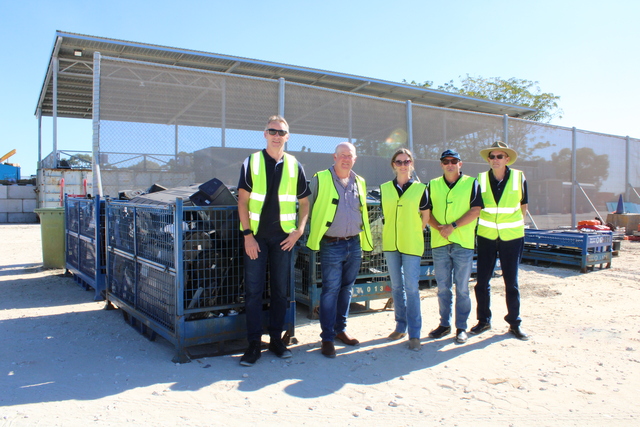In each edition we feature the views of a Local Government Association president. The following is from Councillor Bill Mitchell, President of the Western Australian Local Government Association (WALGA).
Reform of Local Government in Western Australia is currently in a holding pattern. The deadline set by the WA Local Government Minister for all councils to submit amalgamation plans has now passed and a steering committee is currently reviewing the various submissions.
The committee – which includes representatives from WALGA and the Local Government Managers Australia WA branch – will report to the Minister in January; he will then take his preferred options to Cabinet.
There is a concern that such a delay in responding to the submissions could lead to the serious consideration of options for reform losing momentum with councils. Indeed by the time the Minister takes his options to Cabinet it is likely to be have been close to 12 months since he first announced that he wanted wholesale amalgamations of councils.
Now while the Minister has reconsidered his initial position of forced amalgamations through legislation, his announcement last February did inject a sense of urgency into councils’ consideration of how they could operate better.
In every corner of the State there has recently been a surge in Local Governments seriously considering their options on all aspects of reform including amalgamations. It would be frustrating if all that goodwill and effort on reform subsides or is lost.
WALGA maintains that these considerations should embrace the concepts of regional cooperation and local representation as outlined in the Systemic Sustainability Study (SSS) final report.
Certainly the integrity of the SSS final report was enhanced recently following a review by two Upper House Members of the WA Parliament on the outcomes of reform in South Australia and Queensland.
When it was released, the report by the Upper House MPs received statewide news coverage.
Much of what is contained in the report supports WALGA’s research and is consistent with the outcomes of the Association’s SSS report. For example, the report by the MPs emphasised that there are no financial savings in amalgamations – a finding that is consistent in that the SSS report outlined that there would not be financial savings, however there is the opportunity for increased service delivery if the respective Local Governments were looking at the amalgamation reform option.
Also on the topic of other reform options, the MPs report states that, “Where amalgamation is not the appropriate means of achieving structural reform other methods should be considered, such as the:
- ‘regional subsidiary’ model
used in South Australia - multipurpose joint Local
Governments model advocated by the Local Government Association Queensland - a ‘shared service model’
such as the one advocated
by the Local Government
Association Queensland.
Where required, amendments to the Local Government Act 1995 should be made to allow such alternative methods to operate successfully. Priority should be given to such legislative change.” This position is again consistent with the SSS report and the Association’s position. WALGA’s position has been that the Local Government Act should be amended to enable a range of regional options for Local Governments to pursue.
The following options need to be considered:
- formal regional councils –
less compliance - subsidiary model – South
Australian option - Local Government trading
entities - any other models – New
England Alliance or Hunter
Valley models.
It should be open for each Local Government to choose the regional entity that it would like to pursue.
Indeed WALGA maintains that voluntary reform and the involvement of councils is the only way to ensure that any changes are supported by the community and sustainable in the long term.
The SSS report involved approximately four years of research, analysis and consultation to achieve the overwhelming endorsement of the Local Government sector in WA.
The Association and the sector in WA overwhelmingly believe the findings and concepts contained in the SSS are the most workable ways forward for Local Government reform in this State.
The recent report by the WA Upper House MPs further confirms the veracity and merit of this report.







